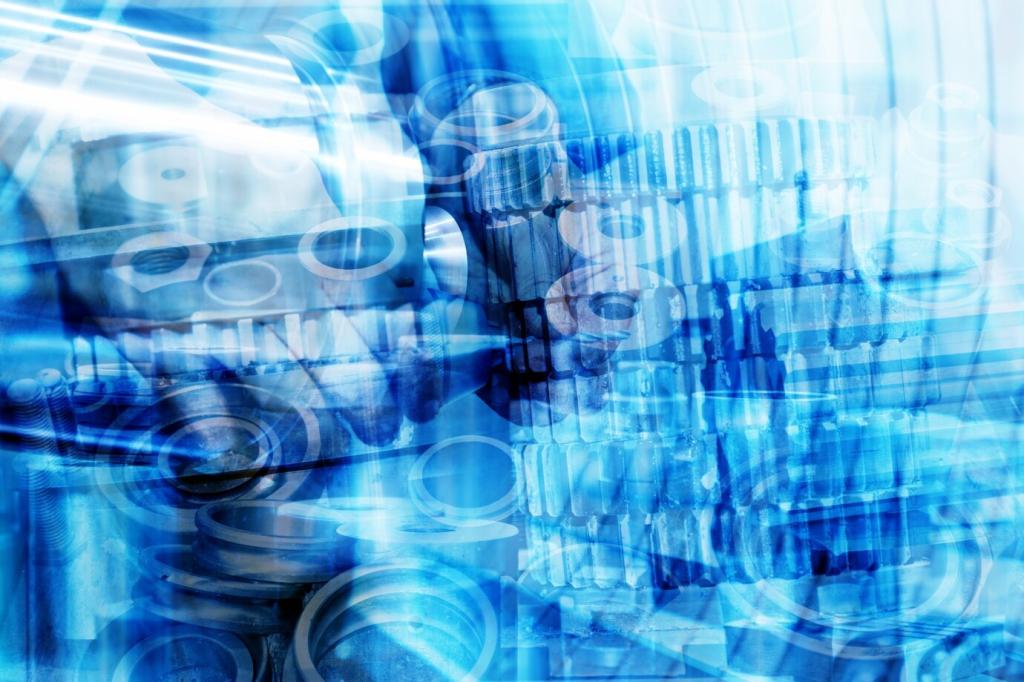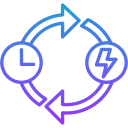Future of Work: Human-AI Collaboration in 2025
The future of work is rapidly evolving, and by 2025, the collaborative relationship between humans and artificial intelligence (AI) will be central to every industry. The integration of AI tools into daily workflows is transforming job roles, business models, and employee expectations. This transformation promises to unlock new levels of productivity and creativity while raising important questions about skills, ethics, and the human experience at work. As organizations navigate this new era, understanding the opportunities, challenges, and best practices will be crucial to thriving in a world characterized by unprecedented human-AI synergy.
Shifting Roles and Enhanced Productivity
Automation Liberating Human Potential
The implementation of AI-driven automation has begun to relieve workers from repetitive, low-value tasks such as data entry, basic analysis, and customer support inquiries. By 2025, this shift will allow professionals to dedicate more time to creative problem-solving and relationship-building activities that require emotional intelligence, empathy, and nuanced judgement. As a result, employees are likely to experience greater job satisfaction and a deeper sense of purpose as they contribute uniquely human skills to their roles.
Augmented Decision-Making
AI systems are increasingly able to process vast quantities of information and deliver real-time insights, enabling employees to make well-informed decisions faster than ever before. For instance, AI-powered analytics tools can synthesize market trends, customer behaviors, and internal performance metrics, equipping teams with actionable recommendations. This level of support enhances worker confidence, reduces the margin for error, and fosters a more data-driven workplace environment.
Redefining Leadership and Collaboration
Leaders in 2025 must adapt to managing teams where human expertise and AI capabilities operate side by side. This new paradigm requires a set of leadership skills focused on collaboration, adaptability, and a deep understanding of technology’s strengths and limitations. Organizations that successfully foster human-AI partnerships will harness the collective intelligence of their workforces, drive innovation, and maintain a competitive edge in rapidly changing markets.

Digital Literacy as a Core Competency
In workplaces where AI tools are commonplace, digital literacy is no longer optional—it is essential. Proficiency with AI-driven platforms, data analysis tools, and automation frameworks is increasingly expected across job titles. Employees who cultivate these competencies are better positioned to collaborate effectively with AI, unlock new efficiencies, and adapt to future changes in technology.

The Rise of Soft Skills
While technical expertise remains vital, soft skills such as adaptability, emotional intelligence, and creativity have gained surprising prominence in the AI-driven workplace. As AI handles more routine work, organizations are investing in developing the uniquely human abilities that technology cannot replicate. Employees who excel at communication, leadership, and innovation are increasingly in demand, as these traits amplify the value of AI-augmented teams.
Ethics and Responsible AI Integration
Fairness and Bias Mitigation
The potential for AI systems to unknowingly perpetuate or amplify existing biases is a significant concern. Organizations adopting AI in 2025 must invest in procedures and technologies that detect and mitigate unfair outcomes. Transparent algorithms, diverse training data, and regularly conducted audits are essential measures to ensure that automated decisions do not harm individuals or reinforce systemic inequalities.

AI as a Creative Partner
AI’s ability to process and generate unique combinations of information has unlocked exciting new avenues in creative work. From product design to marketing campaigns, employees are leveraging AI to brainstorm concepts, test prototypes, and even generate art or music. This collaborative approach enables workers to push the boundaries of what’s possible, accelerating cycles of experimentation and innovation.
Accelerated Research and Development
In research-intensive fields, AI has become an indispensable collaborator. Its capacity for rapid data analysis, pattern recognition, and hypothesis testing fuels the pace of discovery across industries. By working alongside scientists, engineers, and innovators, AI helps organizations develop breakthrough solutions faster—from drug development in healthcare to sustainable practices in energy and agriculture.

By automating routine workflows and providing intelligent support, AI is helping to reduce workloads and workplace stress. Employees can manage their time and energy more effectively, striking a healthier work-life balance. AI-driven scheduling tools, for instance, help optimize meetings and projects, enabling more flexible work arrangements that cater to individual preferences and wellbeing.

When thoughtfully designed, AI can help organizations promote diversity and inclusion by identifying biases in recruitment, development, and performance reviews. AI tools can ensure fairer hiring experiences and identify gaps in workforce representation, assisting HR leaders in creating more equitable workplace environments. This focus on inclusion is critical for fostering innovation and belonging in the AI-augmented workforce.

AI-powered platforms now serve to personalize professional development programs, recommend tailored learning paths, and facilitate mentorship pairing. By proactively engaging employees in their own career growth, AI supports higher levels of job satisfaction and motivation. In 2025, organizations that leverage these technologies to prioritize people will see a measurable impact on retention and overall performance.
With AI-driven tools facilitating seamless communication, project management, and knowledge sharing, the trend toward distributed and remote teams is expected to strengthen. Multinational organizations can now operate with geographically dispersed talent pools, harnessing the best minds regardless of location. This flexibility reshapes organizational boundaries and opens new avenues for global collaboration.

As AI takes over certain tasks and even entire job categories, organizations must support workers through transitions—whether by reskilling, redeploying, or providing new opportunities. Companies that invest in comprehensive change management and prepare staff for shifting roles are better positioned to mitigate the negative impacts of automation and foster loyalty in a changing landscape.
